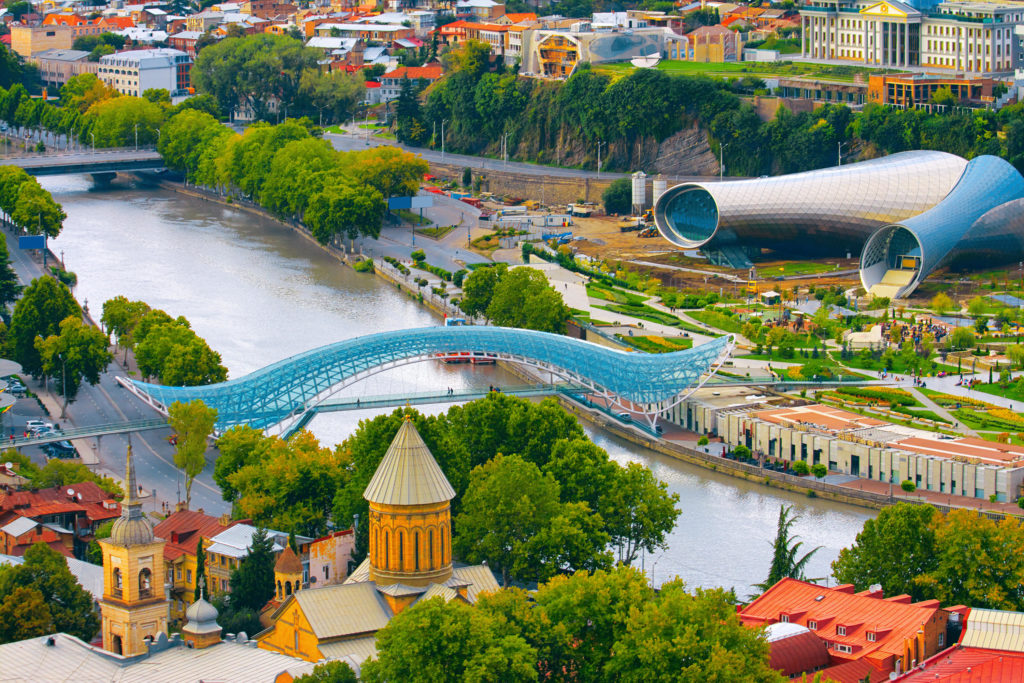TBILISI
Georgia has revised its economic growth forecast to 7.7 percent from a previous projection of 4.3 percent in 2021 amid signs of economic recovery and in line with the International Monetary Fund’s (IMF) current projection.
The ex-Soviet country’s parliament has also lowered the budget deficit to 6.9 percent from 7.6 percent and the government’s debt to 54.6 percent of Gross Domestic Product (GDP).
Tax revenues projection has been raised by 1.11 billion lari ($350 million). The amended budget sets government revenues at 17.9 billion, up by 1.2 billion lari from the initial estimate. Expenditure is set at 19.5 billion lari, 1.1 billion lari up from a previous projection.
The revised budget has been amended to support two more, agricultural and economic productive sector programmes, and health care costs related to the Covid-19 pandemic, the First Deputy Finance Minister Giorgi Kakauridze, told the parliament.
He said that 446 million lari was added to the Covid-19 related expenditures, which would now total 846 million lari. More than 150 million lari is provided for vaccination, which would cover 60 percent of the country’s 3.7 million population, Kakauridze said.
The opposition did not support the proposed amendments saying that additional funds would be distributed to the ruling Georgian Dream party for election purposes. Georgia holds a municipal vote in October.
Earlier this month, IMF said that slow vaccination and political uncertainty could slow down Georgia’s economic recovery.
The Fund said that new COVID-19 variants or vaccination delays could derail the recovery by requiring new lockdowns and reducing external demand, underscoring the paramount importance of controlling the pandemic.
IMF added that renewed political uncertainty amid protests against the government could increase lari volatility and undermine investment and confidence.
Georgia’s highly tourism-reliant economy has been hit especially hard by the COVID crisis and lacks the resource-extraction or manufacturing base that has helped cushion the blow in some other ex-Soviet countries.
The country started economic recovery in April when it recorded 44.8 percent year-on-year growth. Economic recovery continued to gather pace in May and June as the country eased the majority of the restrictions it had imposed to curb the coronavirus pandemic, businesses reopened and tourists tentatively started to return.
According to the IMF forecast, Georgia’s GDP is projected to grow 7.7 percent in 2021 and 5.8 percent in 2022.
GDP grew by 11.5 percent year-on-year in January-May 2021 after contracting 5.4 percent in the same period last year. In May alone the economy expanded by 25.8 percent, compared with a 13.5 percent contraction a year ago. Growth was recorded in all sectors of the economy.
Foreign trade also showed positive signs, with exports increasing 45 percent year-on-year in May to $340 million. Georgia’s foreign trade turnover increased by 18.2 percent to 5 billion dollars.
In April, IMF has approved the disbursement of $111 million to Georgia under its Extended Fund Facility (EFF) to support the ex-Soviet country’s economy and help it to strengthen resilience to shocks.
The IMF said that allocation of the tranche would bring total disbursements under a three-year programme to $687 million.

